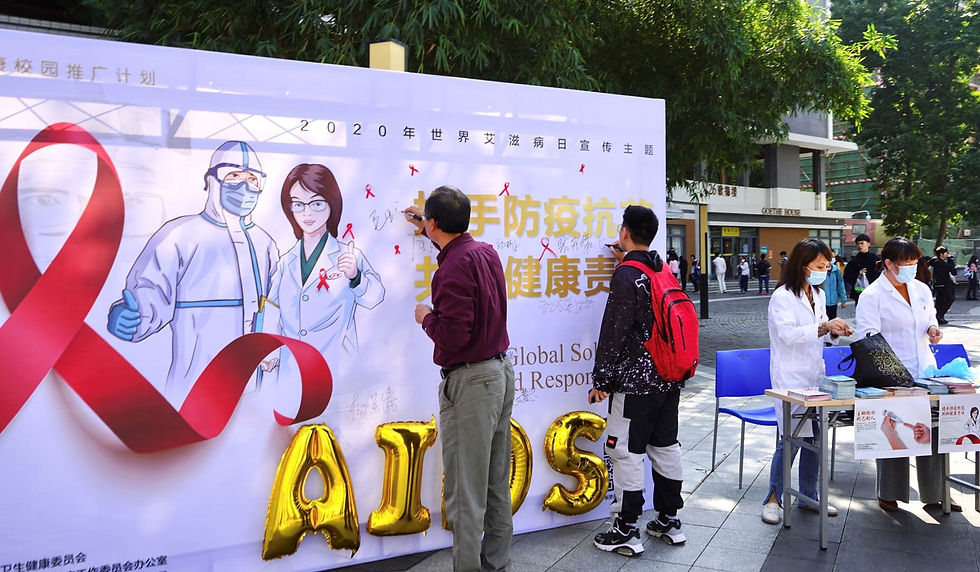Gender Stereotype to Female is being Challenged
- Annie Zhang

- Jan 12, 2021
- 2 min read
By Zeng Xuanyi, Will Wei

It took a week for students from a voluntary service course offered by Whole Person Education Office to collect nearly 200 tags about gender stereotypes on a display board set on the first floor of T5, starting from Dec. 2.
“Our purpose is to respond to the ingrained notion and break the fixed cognitive pattern toward others,” said Wang Xue, a sophomore student major in accounting who is in this course.
“Female suffers the most from gender stereotype,” said Chen Kaijun, a junior student major in Public Relations and Advertising who left a tag on the board. “Women’s beauty form and social responsibility always fall in a fixed cognition.”
“My peer once said to me, ‘it’s rare for girls like reading so much,’” said Guo Qiaoyu, an instructor from Chinese Language and Culture Center, about the “stereotype” she encountered. “They might be unintentional, but such stereotypes are so common in life that people often ignore them.”
“And we found that people tend to focus more on others’ comments on appearance,” Wang Xue said.
“Frail impression on female” tags are addressed to women frequently. In addition to the fixed cognition of female social duties, how women should look like is still a topic widely discussed both in reality and on the internet.
Wang Ju, a singer from the reality show “Produce 101,” stood out in a pack of wan faces and slim thighs with her “unique” looks — thick legs, tan skin, freckles. Her surging popularity triggered an online debate about the beauty norms while made her a target for online bullies mocking her for being too chubby.
Wang Ju’s meteoric rise also didn’t help her win “Produce 101.” Despite being one of the show’s most talented performers, she ended up losing out to her “pale, slim, and youthful” rivals. However, the fixed cognitions of women’s aesthetic perception of media are gradually changing.
The inversion of gender aesthetic gaze on the internet is board-base. The female discourse system is often mentioned in Weibo.
Tenzing Tsondu, a Tibetan from Litang Sichuan who is also known by his Chinese name, Tashi Dingzhen, went virtual on the internet for his good-looking appearance, which brought a heated discussion on criticizing woman’s preoccupation with male appearance.
Based on Dingzhen’s case, a post has won 70 thousand likes on Zhihu, an online question and answer community, accuse females of “value appearance over ability.” Many comments on Weibo refer to “males begin to feel the stereotype anxiety as female suffering.” Weibo’s comments call males to introspect for their stereotype thought about females from the inversion of gender aesthetic gaze.
“It’s significant for UIC students to run the campaign to call on the students’ awareness,” Guo said.
“The edification of respecting others’ life status and thoughts is what we want to reach,” Wang Xue said. “Meaningful change will take painstaking efforts.”




Comments